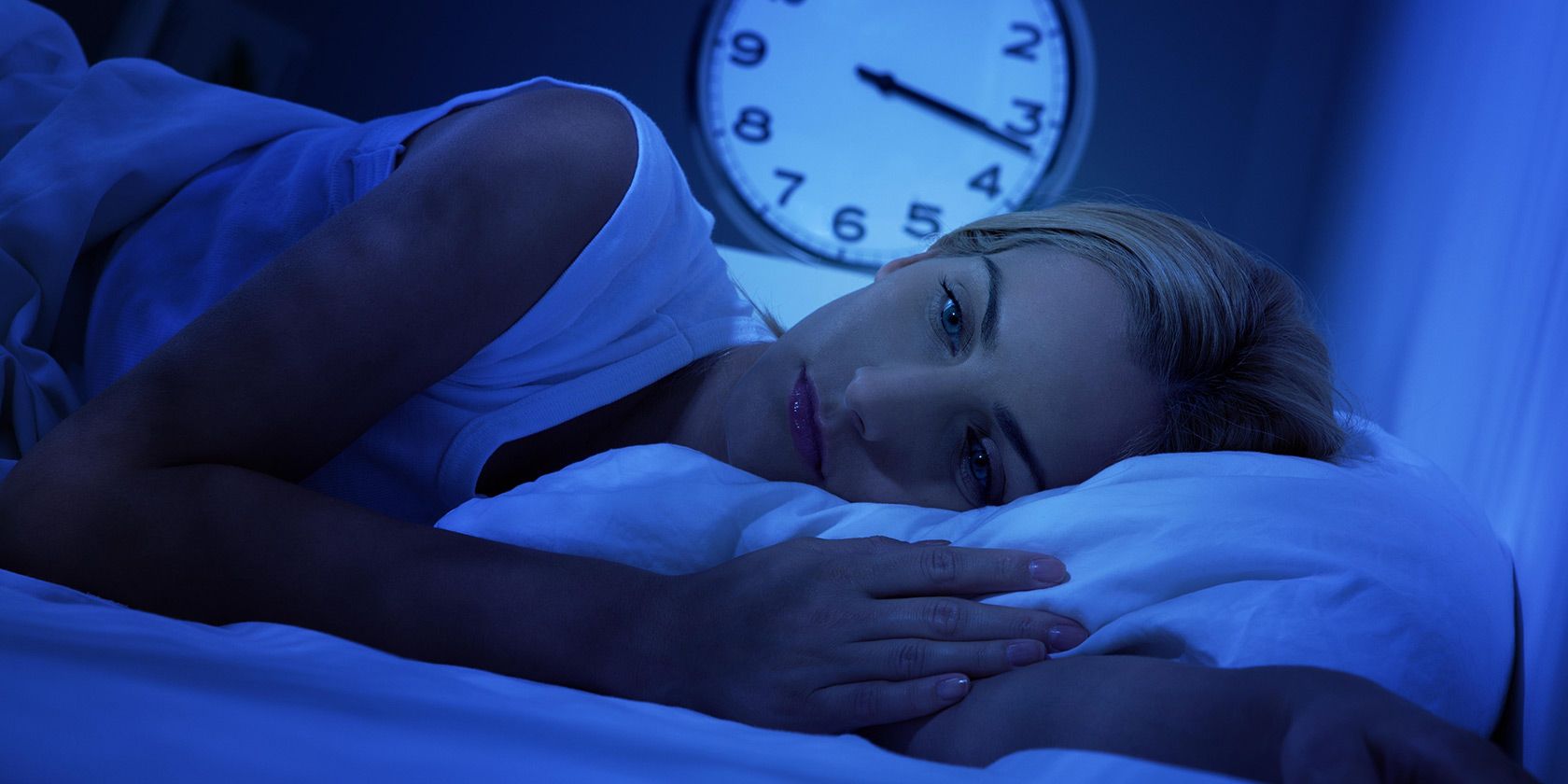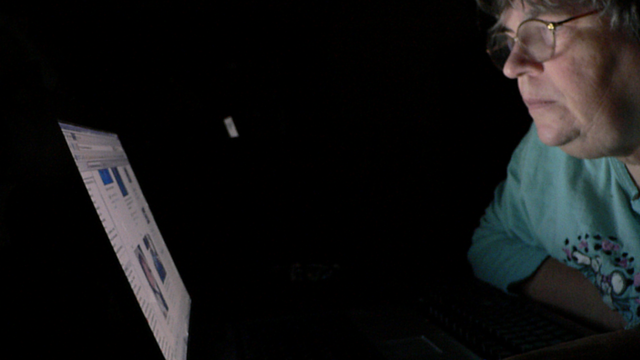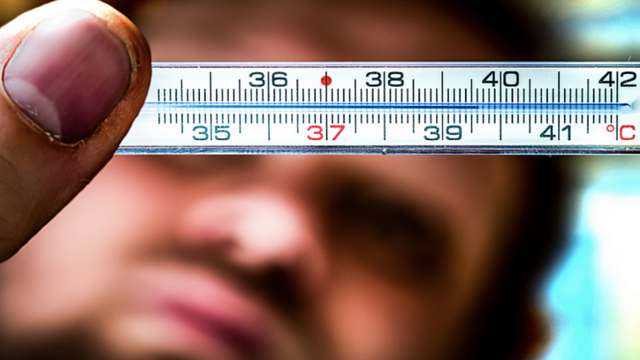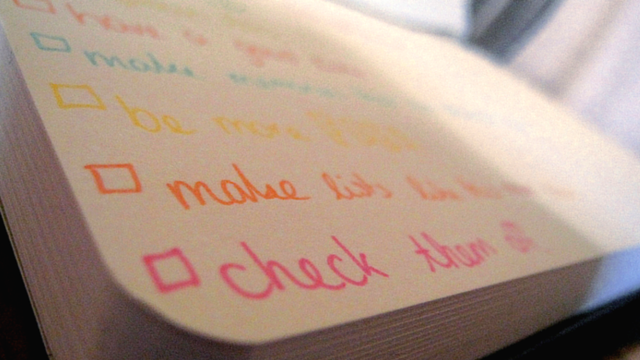We've all had to suffer through the odd night of sleeplessness due to a mind that refuses to shut off. If this is something that occasionally keeps you up at night, try a few of these suggestions and tools before you hit the sack.
A racing mind causes sleep-onset insomnia. In other words, it's taking you too long to fall asleep. If you have a strict waking time, as little as 20-40 minutes of onset insomnia can have a huge impact on the perceived quality of your entire night's sleep, making this problem incredibly important to solve.
This form of insomnia is often caused by an overactive mind that's refusing to shut off due to psychological, physiological or environmental factors. Below are a number of suggestions and tools that have been shown to help cure or reduce sleep-onset insomnia, and to minimize the time it takes for you to fall asleep.
Use Light to Your Advantage
Exposing yourself to bright lights and screens when you're due to head to bed manipulates your mind into thinking it's still daytime. This stimulates the hypothalamus (the area of the brain that induces sleepiness), and prevents the production of melatonin which regulates the day-night cycle of the body.
Each evening, force yourself to have at least 30 minutes (preferably over two hours) of wind-down time that's entirely free of screens. Once lights are out, keep lights-out. Once it's getting dark outside, reduce the brightness on your screens. Set your phone to "do not disturb", and don't check the phone throughout the night. Even exposing yourself to bright light for a few seconds can confuse your mind into thinking it's time to wake up.
Don't be fooled into thinking you can only help your sleep cycle at night, though. Helping your body to sink into a natural rhythm throughout the day, can also trigger your body to wind down more naturally as it approaches bed-time. In this regard, try to stick to regular waking times (even if you've had a bad sleep), and expose yourself to bright light when your body needs it — in the morning, and throughout the day.
Tools
- F.lux (free): this is an app for Mac, Windows, Linux and iOS, that reduces the amount of blue light being emitted from screens, mimicking natural light in the evenings.
- Orange-tinted glasses ($10.99):orange sunglasses block blue light from reaching your eyes, helping the body to naturally produce melatonin, and therefore induce a calmer mind and more sleepiness at night.
- Philips goLITE ($100+):A small, blue light therapy device — not to be used in the evenings — which exposes you to blue light for around 15-30 minutes each morning, helping to increase energy and reduce the winter blues throughout the day. This puts your body into a more stable circadian rhythm.
Use Temperature to Your Advantage
Simply being too hot or too cold when you're in bed can easily reduce your body's ability to fully relax and induce deep sleep. There are two main things we can do here; optimize both your body temperature and your bedroom temperature. Unfortunately, there is no proven "best temperature" that we can turn to, so there will be some testing involved on your behalf.
First; body temperature. As your body prepares to sleep, it naturally lowers the body temperature to induce drowsiness. To help with this, around 60-90 minutes before bed, take either a hot or cold (aka, ice cold) bath (the hot bath causes rapid cooling). Both extremes have been shown to aid the production of melatonin, and to help the body relax. It's up to you to find out which works best.
In Tim Ferriss' 4-Hour Body, he describes taking a 5-minute ice bath (along with taking 1.5-3 milligrams of melatonin) one hour before sleep as, "like getting hit with an elephant tranquilizer".
Second; bedroom temperature. Rather than relying on your bed-sheet or duvet to provide your nightly warmth, set the ambient temperature of the actual room to whatever is optimal for you. The National Sleep Foundation recommends [Broken URL Removed] 65F (18.3C), but you should be able to find what works best for you with a few weeks of experimentation.
Tools
- Sleep Tracking Apps: Learning which temperatures help you to fall asleep quickly requires some tracking on your behalf. There are plenty of sleep tracking apps to make this as easy as possible.
- Waterproof Thermometer: Make sure you can accurately measure the temperature of your bath with a waterproof thermometer to learn what works best for you.
- SmartHome Thermostats: Having a SmartHome thermostat (Nest is the most popular — read our review — though there are some great alternatives) in your bedroom, allows you to have more control over the temperature in individual rooms, while being able to set the temperature with your smartphone, trigger temperature changes based on movement etc.
Use Routine to Your Advantage
A hugely under-utilized and underrated sleep "hack' is simply having an evening routine that works for you, and which is more than just a regular bed-time. This routine should include aspects of the above suggestions, from avoiding technology (including TV) from say, 9pm, to having a hot or cold bath an hour before going to bed. But it should also include more than this.
Your sleep routine should start at least 60 minutes before your normal bed time to give your body time to respond, and prepare itself for sleep. As a few pointers to help you structure your evening routine;
- Mind Dumps: Before getting into bed, empty your mind of anything that may keep it occupied. If you have any worries that keep cropping up, write them down so you can be prompted to think about them tomorrow, instead of tonight. On a similar note, write down your to-do list for tomorrow so you know your next day is organized.
- Food: Avoid eating food before you go to bed, but if you do need to eat to avoid feeling groggy in the morning, or to reduce hunger pangs at night, stick to recommended foods [Broken URL Removed].
- Exercise Carefully [Broken URL Removed]: It's true that exercise helps to clear you mind, but exercising before bed can also stimulate your body, and prevent you from sleeping, despite having a calmer mind. If you want to build exercise into your pre-sleep routine, keep it gentle, such as this yoga routine [Broken URL Removed], or these stretches [Broken URL Removed].
- Avoid Caffeine and Alcohol: If you're struggling with sleep, avoid any "drugs" like these. But you should especially abstain from alcohol 3 hours before you go to bed, and caffeine should be avoided at least 6 hours before bed.
- Do something relaxing: If you're avoiding technology to reduce stimulating your mind (and your hypothalamus), any activity you replace it with should also be relatively unstimulating. With this in mind, stick to fiction books instead of non-fiction, or pick another activity such as those included in this article, from visualization techniques or meditation, to listening to relaxing music or small-talking with a friend.
Whatever your pre-sleep routine looks like, it should be the same each night (just like your morning routine), and include things that work for you. No one person's evening routine will be the same, so this does involve some trial and error. Once you've figured out a few steps that help to quiet your mind and help you to hit the sack with your body ready for sleep, it'll be more than worth it.
Tools
- Coach.me (formerly Lift):This micro-habit building and tracking app (to be used alongside f.lux) can be used to remind you when you're due to start your pre-sleep routine, and allow you to mark when each part of that routine has been completed, helping to convert the new routine into a habit. There are plenty of other Android apps or iPhone apps that could be used instead. As soon as the habit is developed, you should remove the use of your phone entirely during your pre-sleep routine.
- Any.do: I've personally failed to find a better to-do list app than Any.do, which is cross platform, and beautiful to use. To stick with the "avoiding tech" angle, though, there's always pen and paper alternatives that are perfectly suitable.
- Stress Relief Oils ($4.99): There are tons of different stress relieving oils and scent that can be a great addition to your pre-sleep routine to let your body know, through as many senses as possible, that it's time to de-stress and wind-down.
What Else Works For You?
The importance of quality sleep can't be overstated, and neither can knowing how to relax when bed-time is approaching. The tips and tools above have been shown to help reduce onset insomnia and to quiet the mind before sleep, though it's up to you to play around with these suggestions to see what works best for you.
It may take some time, but knowing that you have a system in place for helping the mind to wind down and aid you into a rejuvenating sleep will definitely be worth it.
What other tactics work to help you fall asleep faster?
Image Credits: Woman awake via Shutterstock, Insomnia by Alyssa L Miller (flickr), Insomnia by Bev Sykes (Flickr), 40° im Schatten 346/365 by Dennis Skley (Flickr), Resolutions by MT 23 (Flickr)




